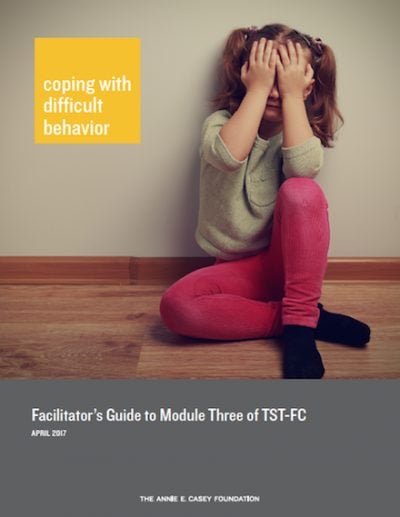Skill Building Sources
One handout in the guide includes a list of resources that family members can explore to learn more about building self-regulation and problem-solving skills.

The Annie E. Casey Foundation has developed a series of facilitator guides dedicated to teaching caregivers about Trauma Systems Therapy for Foster Care.
This guide, devoted to module three, helps instructors arm foster families with important skills and strategies for coping with difficult behavior.
Download the associated presentation deck
The full curriculum, designed to support children with trauma histories, has four modules. These modules cover: 1) trauma’s impact; 2) strategies to address trauma; 3) coping with difficult behavior; and 4) generating signals of safety.
This guide walks a facilitator — slide by slide — through the module’s content, which focuses on helping caregivers navigate three phases of challenging behavior: 1) revving; 2) re-experiencing; and 3) reconstituting. Caregivers will learn how to detect when a child is shifting into one of these behavior states and learn specific strategies for helping children — and themselves — manage emotions and behavioral responses.